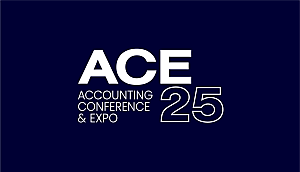Total sanctions against practitioners jumped by 161 per cent in the 12 months to 30 June 2019, with 749 sanctions recorded, up from 287 from the year before.
You’re out of free articles for this month
Of those, 74 practitioners saw their registrations terminated in 2018–19, more than a three-fold jump from the 24 terminations in 2017–18.
Complaints and referrals also rose from 1,528 to 1,974, including a 63 per cent increase in referrals from the ATO.
The marked increase in compliance action comes as TPB chair Ian Klug adopts a new strategic direction in effectively regulating the profession, driven in part by the Royal Commission into Misconduct in Banking, Superannuation and Financial Services Industry.
“The Hayne royal commission didn’t include us, but it has highlighted the change in community expectations around what regulators are doing and what they should be doing,” Mr Klug told Accountants Daily.
“The expectations for regulators have gone up and certainly for me as chair, the focus on being a more effective and efficient regulator is critical.”
The TPB’s compliance initiatives have certainly picked up over the last 12 months, with the regulator launching a debt and lodgement compliance project for tax practitioners late last year.
According to the TPB’s 2018–19 annual report, the project has now seen $37 million in collectable debt recovered, along with the lodgement of 6,637 outstanding income tax returns, IASs and BASs.
The TPB’s compliance push also saw it conduct a continuing professional education (CPE) review, with 1,288 practitioners randomly selected for a review.
Formal CPE audits were subsequently conducted for 530 practitioners, with 83 practitioners found to have been marginally deficient in meeting their obligations and were cautioned.
Unregistered agents
According to the annual report, the TPB has now established a new team dedicated to rogue unregistered advisers, after its analytics gave it insights into over 1,000 cases of unregistered advisers in 2018–19.
However, the regulator has acknowledged that its efforts to pursue unregistered practitioners have been limited due to restrictions in the TASA and funding limitations.
It notes that the only compliance action available to the TPB to deal with unregistered tax practitioner behaviour is to apply to the Federal Court — a time-consuming and costly process.
The ongoing review of the TPB has suggested a range of additional compliance action to help the regulator deal with unregistered agents, including issuing infringement notices and enforceable undertakings, as well as naming and shaming unregistered tax agents and their associated entities.
“Given these challenges and our increased focus on dealing with unregistered and high‑risk practitioner behaviour, our capacity to effectively achieve our regulatory objective will be limited by our existing funding and is an area of ongoing concern,” Mr Klug said.
Looking ahead
“The year ahead includes great opportunities for the TPB to improve its services to the public and practitioners by implementing government reforms arising from the James Review and in our new joint compliance strategy with the ATO,” Mr Klug said.
“This collaboration has a focus on 2,000 higher-risk tax advisers, who advise around 2.9 million clients.
“We expect this compliance strategy will support honest practitioners, address tax system integrity and help reduce the tax gap.”

 Login
Login







